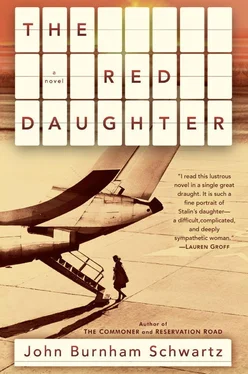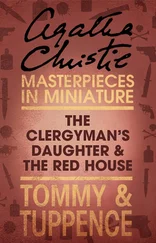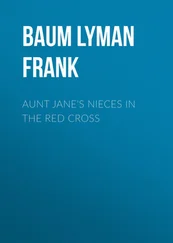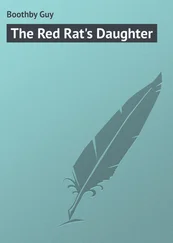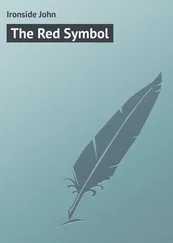John Schwartz - The Red Daughter
Здесь есть возможность читать онлайн «John Schwartz - The Red Daughter» весь текст электронной книги совершенно бесплатно (целиком полную версию без сокращений). В некоторых случаях можно слушать аудио, скачать через торрент в формате fb2 и присутствует краткое содержание. Город: New York, Год выпуска: 2019, ISBN: 2019, Издательство: Random House, Жанр: Историческая проза, на английском языке. Описание произведения, (предисловие) а так же отзывы посетителей доступны на портале библиотеки ЛибКат.
- Название:The Red Daughter
- Автор:
- Издательство:Random House
- Жанр:
- Год:2019
- Город:New York
- ISBN:978-1-40006-846-3
- Рейтинг книги:4 / 5. Голосов: 1
-
Избранное:Добавить в избранное
- Отзывы:
-
Ваша оценка:
- 80
- 1
- 2
- 3
- 4
- 5
The Red Daughter: краткое содержание, описание и аннотация
Предлагаем к чтению аннотацию, описание, краткое содержание или предисловие (зависит от того, что написал сам автор книги «The Red Daughter»). Если вы не нашли необходимую информацию о книге — напишите в комментариях, мы постараемся отыскать её.
The Red Daughter — читать онлайн бесплатно полную книгу (весь текст) целиком
Ниже представлен текст книги, разбитый по страницам. Система сохранения места последней прочитанной страницы, позволяет с удобством читать онлайн бесплатно книгу «The Red Daughter», без необходимости каждый раз заново искать на чём Вы остановились. Поставьте закладку, и сможете в любой момент перейти на страницу, на которой закончили чтение.
Интервал:
Закладка:
“I don’t know.”
“What a hero you are, Peter. What a man.”
Martha got to her feet.
“I don’t ever intend to talk about this again. Just don’t ever think—not for one minute—that I don’t know who you are and why you want her. Now I’m going to bed.”
LETTER
2 March 1976
La Jolla, CA
Dear Peter,
You are the only one I can tell. This morning in our small apartment I lost control of myself and—how can I write this?—I slapped my Yasha across his face.
The sound of the blow, his awful cry—not just the pain but such shock at my betrayal—the hideous red welt in the shape of my own hand that instantly appeared on his blameless skin… I was so horrified at what I’d done that I ran from the building. Yes, I left my five-year-old son alone. I got in my car and drove away. I tell you, Peter, I should be locked up. I drove to the beach, the very edge of this country, where the road ends in a parking lot by the Pacific Ocean. And there for nearly an hour, while my son faced oblivion, I did nothing but sit on the hood of my car and hug myself, the tide coming in, the waves growing bigger and louder, shuddering the coastline in this land of earthquakes and fault lines, this place where, when Yasha and I first arrived, the scent of the trees—the pine, the eucalyptus, the lemon, the orange—made me remember, oh, God how I remembered, the Black Sea of my childhood.
Yasha was watching cartoons on TV when I returned. It almost seemed he hadn’t noticed. But when I got on my knees and embraced him, sobbing, he began to cry so hard I thought he would never stop.
I miss you, my Peter. But please understand, I could not bear to have you see me like this.
Your loving SvetlanaPART FOUR

1983: ENGLAND
16 October
Cambridge
They advise me that if I am going to write anything serious now, it ought to be in Russian, not English. That Russian is the door to my “authentic” voice and therefore most likely to produce the “authentic” me in any “authentic” literary work that I, Lana Evans (not the name they’re interested in), might write. The great Latvian-born “Sir” Isaiah Berlin tells me this, when he thinks to tell me anything anymore, he has been so sly with his esteemed intellectual presence ever since I came to this country, certainly more fox than hedgehog. The ostensible publisher of my next book—not a single word of which has yet been written in either Russian or English—Hugo Brunner, also tells me this, as a way, he believes, of encouraging me to new depths of expression with perhaps, though not necessarily, the promise of a book advance at the end of it.
But neither of these men nor any of the others— none —understands my pain when I write Russian, my father’s language; or for that matter the guilt which burns within me when I choose not to write Russian, the language of the last words my mother ever spoke to me, whatever they were, God help me I wish I could remember; or even, as with these most recent years, which have seen me turn fifty and older, when I have chosen to write no language of any kind, to myself or others.
It was my Russian voice I could not stand anymore and chronically attempted to abandon, like some trunk in an Edgar Allan Poe story filled with poisoned memories, which I tried to lose at every station of my long wayward journey, only to find upon opening the door of my new house in a new town (whichever new house in whichever new town, there have been so many in Arizona, California, New Jersey) that, lo, the trunk was there. Indeed, sometimes it was the only thing there, waiting for me, having mysteriously arrived in advance, and at the expense, of every other memory and language I ever possessed.
And so, here in my little attic flat with the perpetual hot water problem on the edge of Cambridge University, founded in the year 1209, which my dear Akhmatova never saw, I open this notebook and begin again. Continue again. In my own language, this Russian I brought with me from my native sadness.
My American son, on the other hand, not even twelve and currently being educated thanks to a most generous scholarship by the Quakers at the Friends’ School in the medieval market town of Saffron Walden, England, Great Britain, speaks and writes only in English.
Long live my unsilent son.
30 October
My beloved Dodge gone forever (last-ditch sale price of $350 hard cash handed to me on the eve of our departure to England by an unsavory fellow wearing a track suit and half-gold dentures, but no matter), I take the train to Essex, and from there a local bus to Saffron Walden to pick up Yasha for his half-term holiday. The Friends’ School, founded 1702, one of those formidable brick piles the English once did so well, with clean flat quadrants of lawn greening the spaces in between the piles. In this case, however, I am pleased to find the architectural certainties of Western empire leavened by a warm Quaker humility that, as we Americans like to say, takes all comers . To think of my son sitting in Silent Meeting each morning, surrounded I hope by new mates while enveloped simultaneously by the weight of this academic history on the one hand and these welcoming, peace-loving Quaker arms on the other, makes me feel again that probably I have made the proper choice in bringing him to this country, where he might receive the sort of education that a free citizen of the thinking world must and should have if he is to make something of himself in these catastrophic times.
Before meeting Yasha in his dormitory, I stop by the administration building for a prearranged chat with the Head of School. Mrs. Gwendolyn Channing greets me dressed all in comforting Quaker woolens. The point of this meeting to rededicate the personal promise she made me upon my application to the school (and again upon their granting Yasha the generous scholarship) that under no circumstances will my son be exposed to the knowledge (which up to now I have rigorously kept from him) of his grandfather’s infamous name. He will, in short, be protected from unwanted—which is to say, any—publicity from the world outside these peaceable walls.
Mrs. Channing assures me that all is well . There was a rather challenging first month, during which, out of a natural state of anxiety at finding himself thrust into a foreign situation, Jacob was perhaps overemphasizing certain, shall we say, American aspects of his personality , but he now seems to be settling in quite happily and making a number of new friends.
One such friend, presumably, is the quiet Indian boy sitting with Yasha on the front steps of the dormitory building as I approach. My son—my height now, with evidence of Sid’s long arms and stretched legs and a healthy mop of dark hair curling over forehead and ears—offers me a lanky hug and mumbled Hi, Mom (or is it Mum I hear in some sort of borrowed Cockney mush?), followed by an introduction to his new chum Rog, whose real name, I learn once I have installed the three of us at a table in the Old English Gentleman pub in town for steak-and-kidney pies and boiled peas on toast, is really Rajesh. Rog’s parents are back in Bombay, it seems, and will not be over until Christmas. I would invite him to spend the break with us in Cambridge if we had room, but we don’t, and if we did not live in an attic, as we do, and if we did not have cold winds already blowing through the “ventilation” holes behind our gas stove, and so forth. After my pint of brown ale I tell young Rajesh, who is as short as my son is tall, that I had an Indian friend once, more than a friend actually, a husband in fact, even if bloody Kosygin and his people refused to acknowledge our relationship in its true form and only reluctantly and for their own political calculations allowed me permission to travel, after dear Brajesh’s death, to his homeland so that, along with his enormous grieving family, I might pour my dear companion’s ashes back into the river of his birth. Yes, Rajesh can’t imagine it, but I had gone to India once, and a heart-wrenching and momentous journey it turned out to be.
Читать дальшеИнтервал:
Закладка:
Похожие книги на «The Red Daughter»
Представляем Вашему вниманию похожие книги на «The Red Daughter» списком для выбора. Мы отобрали схожую по названию и смыслу литературу в надежде предоставить читателям больше вариантов отыскать новые, интересные, ещё непрочитанные произведения.
Обсуждение, отзывы о книге «The Red Daughter» и просто собственные мнения читателей. Оставьте ваши комментарии, напишите, что Вы думаете о произведении, его смысле или главных героях. Укажите что конкретно понравилось, а что нет, и почему Вы так считаете.
